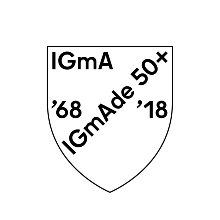History
1967–1993: Prof. Dr. Jürgen Joedicke
The IGMA was founded in 1967 against the theoretical antagonism of a dogmatic frozen modernity and began in the revolutionary year 1968 its regular teaching operation. Its founder Prof. Dr. Jürgen Joedicke was head of the institute for more than a quarter of a century (from 1967 to 1993) which period enjoyed a significant international response. In this era, not only were the history of modern architecture and interpretations of contemporary architecture in the foreground, but also the theoretical foundations of architecture and their implementation in practice. The institute's two series of publications - the Dokumente der modernen Architektur (Documents of Modern Architecture), published in 16 volumes (1961-1987) and the Arbeitsberichte zur Planungsmethodik (Working Reports on Planning Methodology, published in 9 volumes (1969-1975) - still bear witness to this; from the beginning on, the institute oriented itself towards contemporary topics: on discussions on potentials of planning theory and user participation, or the relevance of the historical city. At the IGMA, the combination of design theory and theoretical reflection was a program in itself. This trained the contextual thinking of the students, who should direct their attention and actions to the questions: How do we want to live and what urban environment do we want?
1993–1998: Prof. Dr. Werner Durth
After the emeritation of Jürgen Joedicke, Prof. Dr. Werner Durth took over the direction of the institute (from 1993 to 1998), where he continued his historical studies on the relationship between tradition and modernity. During this period an important, albeit almost imperceptible renaming of the institute took place: "foundations of the modern" became "foundations of modern architecture" - especially in view of the fall of the wall it was more than understandable that "modern architecture" can only be thought of in the plural. Durth's significant IGMA research was documented in the two-volume publication Architektur und Städtebau der DDR (Architecture and Urban Planning in the GDR; 1998).
2001–2018: Prof. Dr. Gerd de Bruyn
After an "interregnum" in which a symposium on the 30th anniversary of the IGMA was held in the winter of 1998/99 under the direction of Prof. Wolfgang Schwinge, from 2001 to 2018 Prof. Dr. Gerd de Bruyn was the head of the institute. Under de Bruyn, IGMA continued to live up to its special role of being an interdisciplinary institute that extends and transcends the conventional boundaries of building, and which is particularly responsible for teaching theory and practice, art and technology, natural and cultural sciences. In addition, de Bruyn dealt with phenomena such as fashion and new media, as well as the analysis of the scientific character of architecture and the theory and practice of building with living plants (Baubotanik).
Since 2018: Prof. Dr. Stephan Trüby
Since April 2018 Prof. Dr. Stephan Trüby is the new head of IGMA. The main areas of research of Prof. Trüby are the architecture and urban planning especially of the 20th and 21st centuries, in particular the economy and politics of architecture as well as the elements and syntheses of architectural space. Prof. Trüby studied architecture at the Architectural Association (AA) in London. Important academic stations were his Visiting Professorship for Architecture at the Staatliche Hochschule für Gestaltung in Karlsruhe (2007-2009), the direction of the postgraduate program "Scenography / Spatial Design" of the Zurich University of the Arts (2009-2014), his activity as Lecturer at the Graduate School of Design at Harvard University (2012-2014) and his Professorship of Architecture and Cultural Theory at the TU Munich (2014-2018). He was head of research at the Venice Architecture Biennale 2014 and is a permanent contributor to the magazine ARCH+.


